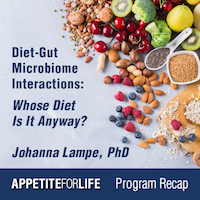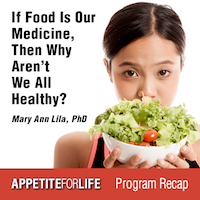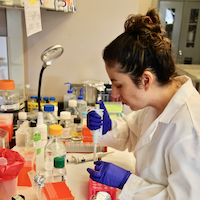Genes and Nutrition
Each of us is metabolically unique. Gene variations known as SNPs (single nucleotide polymorphisms) often are a factor in an individual’s ability to metabolize or use nutrients efficiently. Each of our specific nutrient needs is affected by which specific combination of SNPs we have, but with thousands known to impact nutrition metabolism, how do we know what those needs are?
NRI researchers are working to create a “catalog” of SNPs that alter our nutritional needs by understanding how genetic and other complex biological information can be used to better estimate individual nutrition requirements and intolerances. Our scientists use bioinformatics to extract such information from population and intervention studies, develop rules for predicting individual needs, and bring precision nutrition to health care providers and consumers with digital tools.
Publications
Genes and Nutrition Publications
2020
Genetic variants affecting bone mineral density and bone mineral content at multiple skeletal sites in Hispanic children. Voruganti VS
Precision (Personalized) Nutrition: Understanding Metabolic Heterogeneity. Zeisel S
2019
DNA methylation in mice is influenced by genetics as well as sex and life experience. French J
Cytosolic 10-formyltetrahydrofolate dehydrogenase regulates glycine metabolism in mouse liver. Krupenko S
Deleterious mutations in ALDH1L2 suggest a novel cause for neuro-ichthyotic syndrome. Krupenko S
Fine mapping and identification of serum urate loci in American Indians: The Strong Heart Family Study. Voruganti VS
Heterogeneity in Metabolic Responses to Dietary Fructose. Voruganti VS
Genetic analysis of hsCRP in American Indians: The Strong Heart Family Study. Voruganti VS
A trans-ancestral meta-analysis of genome-wide association studies reveals loci associated with childhood obesity. Voruganti VS
Healthy dietary patterns and risk and survival of breast cancer: a meta-analysis of cohort studies. Voruganti VS
Omega-3 Fatty Acids and Genome-Wide Interaction Analyses Reveal DPP10-Pulmonary Function Association. Voruganti VS
2018
C16-ceramide is a natural regulatory ligand of p53 in cellular stress response. Krupenko N
Nutritional Genomics of Cardiovascular Disease. Voruganti VS
Genetic determinants of BMI from early childhood to adolescence: the Santiago Longitudinal Study. Voruganti VS
Serum Lipid Concentrations and FADS Genetic Variants in Young Mexican College Students: The UP-AMIGOS Cohort Study. Voruganti VS
Arsenic-gene interactions and beta-cell function in the Strong Heart Family Study. Voruganti VS
Dietary Modulation of the Epigenome. Zeisel S
2017
Exome sequencing reveals novel genetic loci influencing obesity-related traits in Hispanic children. Voruganti VS
Genetic variation underlying renal uric acid excretion in Hispanic children: the Viva La Familia Study. Voruganti VS
Reduced brain volume and impaired memory in betaine homocysteine S-methyltransferase knockout mice. Zeisel S
Choline, Other Methyl-Donors and Epigenetics. Zeisel S
2016
CerS6 Is a Novel Transcriptional Target of p53 Protein Activated by Non-genotoxic Stress. Krupenko N
Genotype, B-vitamin status, and androgens affect spaceflight-induced ophthalmic changes. Zeisel S
Related News
AFL Program Recap: "Diet-Gut Microbiome Interactions: Whose diet is it anyway?"
March 22, 2019 – If you missed our March Appetite for Life presentation by Joanna Lampe, PhD, RD, you can catch up. Watch the entire program on video now. The live presentation took place at Forty-Six in Kannapolis on Wednesday, March 13, 2019.
NIH Grant To Study Gene Mutation Associated with Rare Disease
March 22, 2019 – Sergey A. Krupenko, PhD, professor of nutrition at the UNC Nutrition Research Institute (NRI), has been awarded a $2.4 million grant from the National Institutes of Health for his research project, “Regulation of Mitochondrial Function by Folate...
Personalized nutrition: A diet for every individual?
February 25, 2019 –Emily started gaining weight when she was in her 30’s, after having two kids and dealing with a stressful job. Her weight gain led to increased blood pressure and higher cholesterol levels. When she visited her doctor, the doctor advised that she change her diet to help her lose weight and improve her cardiovascular health. Emily knew following a diet was difficult, and it took a few false starts for her to follow one consistently.
If Food Is Our Medicine, Why Aren’t We All Healthy?
February 25, 2019 – If you missed February’s Appetite for Life presentation by Mary Ann Lila, PhD, you can catch up. Watch the entire program on video now. The live presentation took place at Forty-Six in Kannapolis on Tuesday, February 12, 2019.
February Faculty Focus: Carol L. Cheatham, PhD
February 11, 2019 – That Carol L. Cheatham, PhD was a scientist was clear to her family early on. At the age of 8 growing up on a farm in rural Wyoming, Cheatham conducted observational studies following the many farm cats around to find out (and diligently record in her notebook) where they would give birth. Once that got boring, she started trying to predict where the litters would be born based on her observations from the previous years.
Celebrating and Preparing in A Milestone Year
January 25, 2019 – As we at the NRI celebrate our tenth anniversary year, we are also taking measures to secure our longevity. Our world-class research facility on the North Carolina Research Campus opened in 2008 with the most advanced equipment, instrumentation, and laboratories available. Now, as we enter a second decade, administrators are evaluating our building, systems, and staffing to ensure that our scientists have the best infrastructure to allow them to continue their quest for new precision nutrition discoveries.







